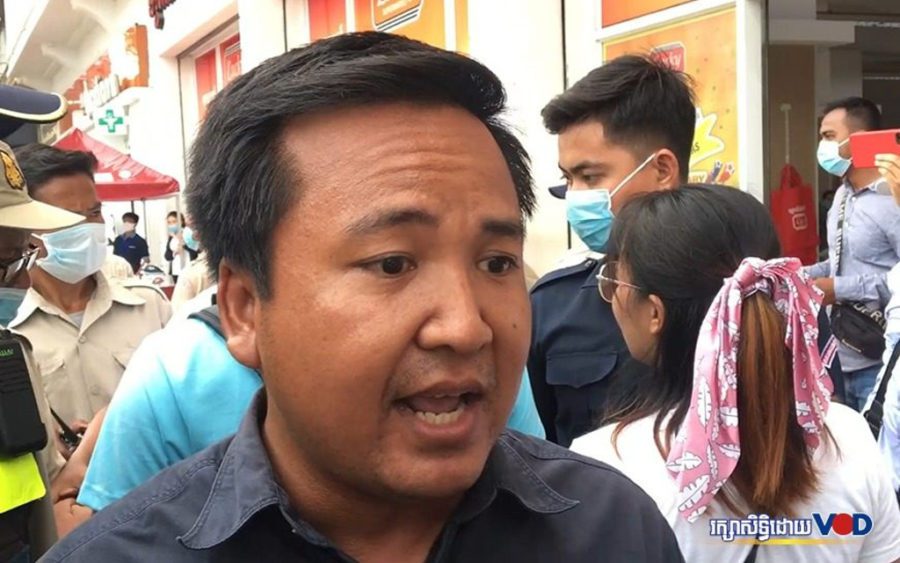The Phnom Penh Municipal Court on Wednesday sentenced the leader of the minor Khmer Win Party to 20 months in prison for incitement after he protested last year in support of jailed unionist Rong Chhun and visited the Vietnam border area that Chhun claimed was under threat.
Chhun and supporters Sar Kanika and Ton Nimol are being separately tried over the unionist’s claims, made in late July, that Cambodia was ceding territory to Vietnam.
In a morning session, Judge Li Sokha announced that Suong Sophorn was found guilty of incitement to disturb social security, and handed a fine of 4 million riel, or about $1,000, and damages of 2 billion riel, about $500,000, to the governmental Border Affairs Committee in addition to the 20-month jail sentence.
After the verdict was read out, Sophorn stood up, pointed at the judge and called on Sokha to check a report by Radio Free Asia about the border issue.
“Please, listen to the Radio Free Asia report again,” he said.
When Chhun was on trial earlier this year, he said under questioning that he had visited the border area in Tbong Khmum province to further investigate a report he had heard on the U.S.-run radio station.
Speaking to a reporter outside the courtroom, Sophorn said he didn’t accept the verdict or jail sentence, and wanted to be allowed to stay at home like on-trial CNRP president Kem Sokha.
Sokha was arrested for treason in September 2017 but released from jail a year later and put under court supervision. His trial began last year but has yet to be resumed after a Covid-19 delay.
“It is unacceptable and I ask to be detained at home like Mr. Kem Sokha’s case, because I am the president of a party and Mr. Kem Sokha is also the president of a party. Mr. Kem Sokha has the right to stay outside the court. Why don’t I? The law must be transparent,” Sophorn said.
Sophorn’s Khmer Win Party has never won a seat in parliament, while the CNRP, outlawed in 2017, won almost 44 percent of the vote in commune elections that year.
Sophorn added that he would appeal the verdict.
His wife, Hang Phary, 32, said outside the courtroom that the conviction was political.
“It’s an injustice because he did not incite chaos. He just visited the border [to see] whether the land was really lost,” Phary said. “As a member of the public, I also want to know about the border, because there are new [border] markers. Where were the old border markers located?”
Parts of Cambodia and Vietnam’s more-than-1,000-km shared border have yet to be fully demarcated, leading to periodic disputes between the two countries and politicians making racially-tinged populist appeals over the issue.
Additional reporting by Va Sopheanut













